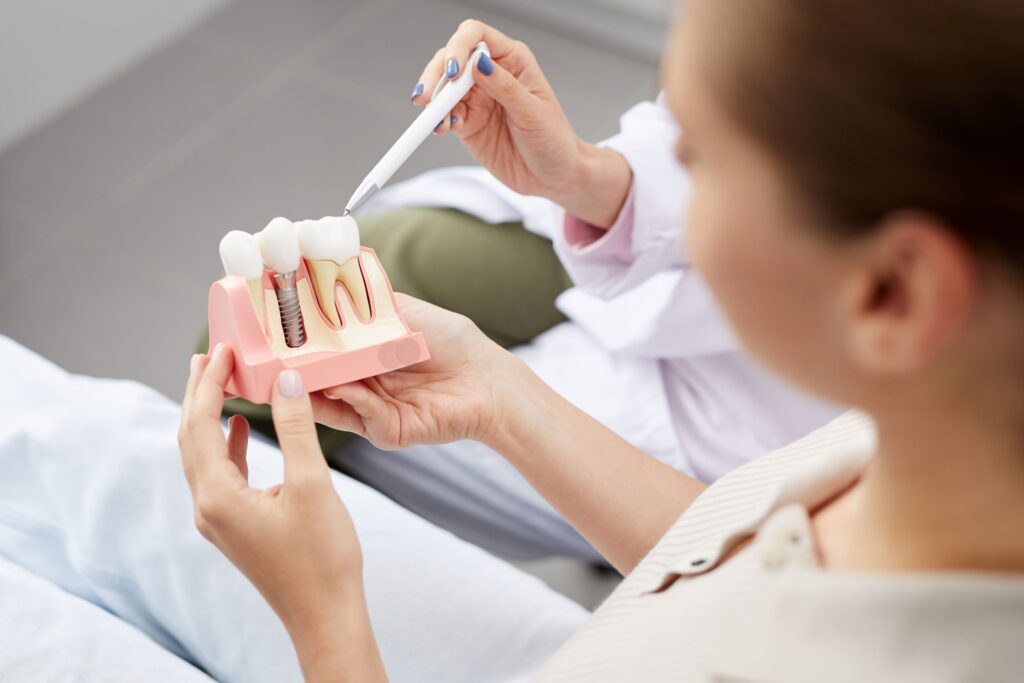
Are you seeking a resilient and long-lasting solution to replace your missing teeth? If so, you might be a good candidate for dental implants. Unlike traditional dentures and dental bridges, these restorations are surgically placed in your jawbone for added strength and stability.
Furthermore, the procedure has an incredibly high success rate of more than 90% when a qualified provider performs it. But that doesn’t mean your new teeth are completely impervious to harm. Continue reading to learn about 3 things that can potentially impact how successful they will be!
Factor #1: Jawbone Density
Many patients are surprised to learn that their jawbone starts to degenerate when one or more natural teeth are lost. This is because, under normal circumstances, your roots stimulate additional bone growth to keep your jaw active and healthy. As a result, you can lose up to 25% of the surrounding bone density within the first year of a tooth falling out, which can eventually contribute to additional loss. This can also lead to noticeable facial collapse.
Dental implants are the only restorations that include a biocompatible support rod that’s placed directly into your jaw and eventually fuses with the bone to function like a root. This prevents the foundation of your mouth from becoming too frail to support your teeth. However, if your jaw is too thin or weak to start with, you might not be approved for the implant procedure until you’ve had an additional bone graft to bulk it up sufficiently.
Factor #2: Whether You Smoke
Sources estimate that people who smoke are about two to three times more likely to experience implant failure than non-smokers. Cigarettes, vapes, and other tobacco products contain nicotine, which can be risky to your dental health. This addictive chemical reduces your blood flow and oxygen levels, rendering your body unable to deliver essential nutrients to your mouth to recover after surgery.
At the same time, it suppresses your immune system, increasing your vulnerability to infections, like peri-implantitis, the leading cause of failure. If you’re unable or unwilling to quit smoking permanently, at least try to wait several months before resuming your habit to give your mouth time to mend.
Factor #3: Dental Hygiene Habits
Your restoration can’t develop cavities, but if the bone or connective tissues holding it in place are diseased, it can become destabilized or dislodged. One simple but effective way to prevent this is by regularly cleaning your mouth with a twice-daily dental hygiene routine.
You should thoroughly brush and floss your teeth both morning and night to remove unhealthy bacteria and plaque buildup that contribute to many common oral issues. You can also avoid potential implant failure by scheduling a routine checkup and cleaning with your dentist every six months!
Meet the Author
Dr. Dhiren Ahir has 20 years of experience helping people enhance their lives by improving their dental health. He earned a Bachelor of Dental Surgery degree from the Government Dental College and Hospital in Ahmedabad, India, then made his way to the U.S. and graduated from the New York University College of Dentistry. Today, he proudly provides a comprehensive menu of services to meet all your family’s needs under one roof. Plus, he has the in-depth training and advanced technology to place and restore dental implants in the office. You can request an appointment on the website or by calling (940) 514-0333.
